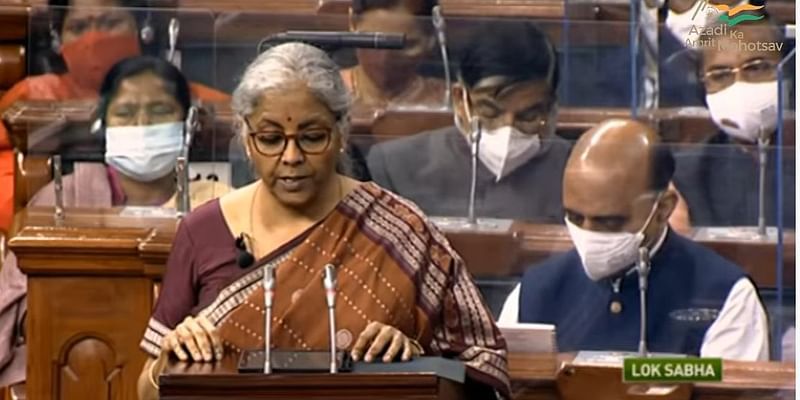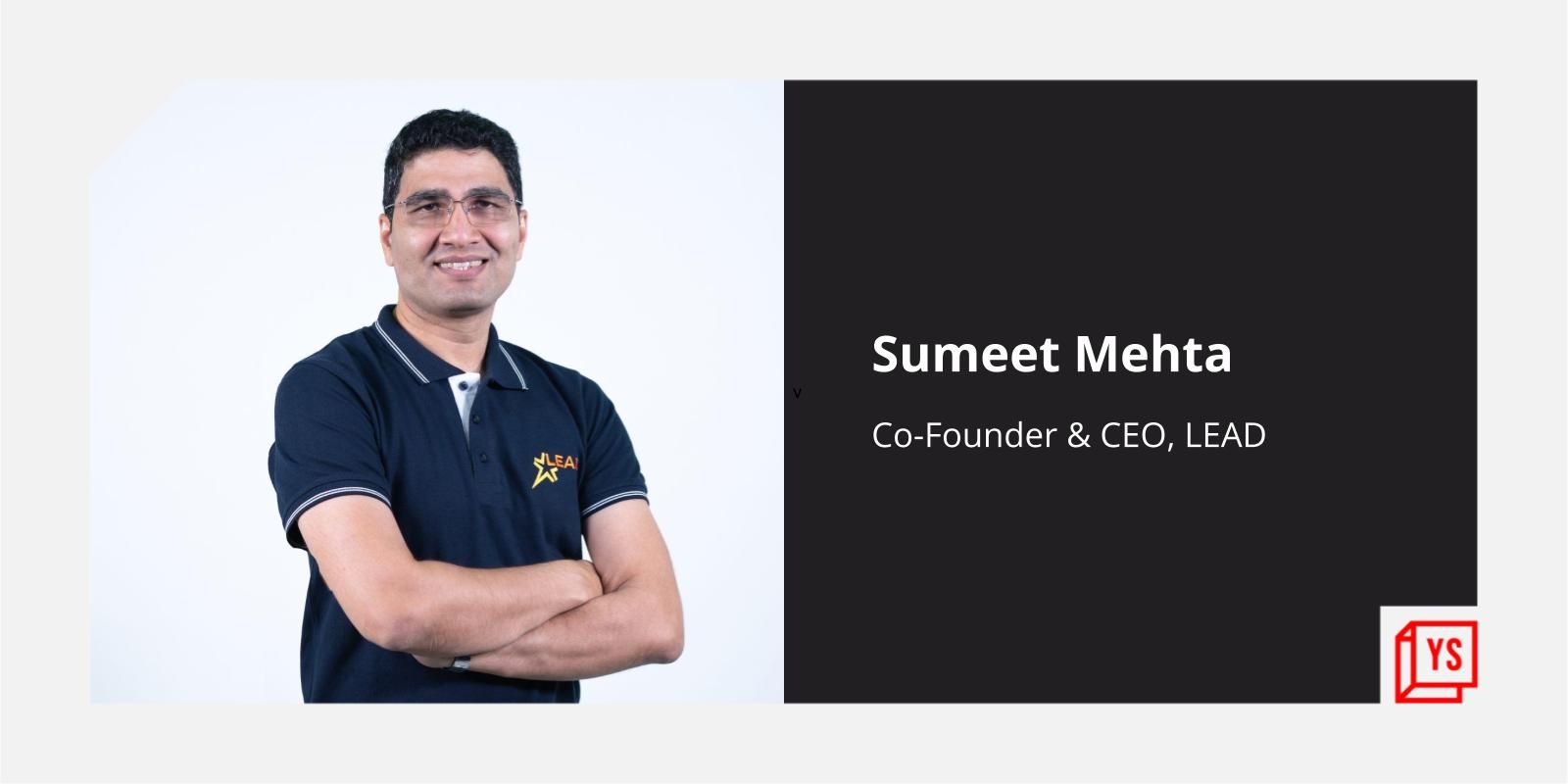In the Union Budget 2022 presented by Finance Minister Nirmala Sitharaman on February 1, education was one of the prime focus areas. With the COVID-19 pandemic significantly impacting the education sector, the Union Finance Minister laid emphasis on online education and skilling programmes.
Sitharaman also proposed to set up a digital university to provide education that will be built on a hub and spoke model.
“The digital university will be built on a networked hub-and-spoke model and will build cutting-edge ICT expertise. The best public universities and institutions in the country will collaborate as a network of hubs and spokes,” she stated.
The Budget also proposed the launch of DESH-Stack e-portal - a digital ecosystem for skilling and livelihood - to empower citizens to skill, reskill or upskill through online training.
The finance minister announced the expansion of “One Class, One TV Channel’ programme” under PM e-VIDYA scheme from 12 to 200 TV channels. This will enable all states to provide supplementary education in regional languages for classes 1 to 12.” The move will help kids make up for the loss of formal education due to the pandemic, she said.
The Centre is also taking steps to develop high quality e-content that can be delivered through various modes. Teachers will also be equipped to use these digital tools, Sitharaman added.

Source: PIB: Finance Minister Nirmala Sitharaman announcing Budget 2022
While there has been positive reaction from the education sector for Budget 2022 announcements, few experts felt the Budget should have outlaid funds to improve digital infrastructure for schools and higher education students.
Also, online education can at best only play a supplementary role in education. The sector would love to see a greater focus on improving the teaching and learning processes in schools vis-a-vis infrastructure and tech-enabled curriculum.
Here are some of the post-Budget reactions from experts in the education sector.
Byju Raveendran, Founder and CEO, BYJU'S

There is a significant jump of 12 percent in the budgetary allocation to the Ministry of Education. The government continues to approach education reforms with a digital-first mindset.
Programmes such as 'One Class, One TV Channel’ for supplementary education in school, DESH-stack for upskilling India's youth, and virtual labs for developing critical thinking skills will go a long way in fulfilling the liberating vision of NEP 2020.
I have always maintained that the digital learning gap is easier to bridge than the physical learning gap. The plan to connect all villages and their residents with optical fibre by 2025 is a welcome step in this regard. The proposed digital university with a personalised learning experience will make higher education more
accessible and equitable.
Sumeet Mehta, Co-founder and CEO, LEAD

Overall, this has been a progressive budget as it accelerates the government’s efforts towards inclusive and sustainable development. As an educator, I welcome the emphasis on creating digital and free-to-air channels of education. However, at the same time, the budget appears to circumvent physical schooling. I sincerely hope that is not the case. While online learning was inevitable due to the Covid-19 pandemic, it would never be as effective as offline learning, which brings out the best in students in terms of learning outcome and performance. Online education can at best only play a supplementary role in education. I would have also loved to see a greater focus on improving the teaching and learning processes in our schools vis-a-vis infrastructure and tech-enabled curriculum. Going forward, I hope there will be policy changes in that direction.
Neeti Sharma, Co-founder and President, TeamLease Edtech
The budget has many positives: Establishing a Digital University is really appreciated. However, along with an independent Digital University, the government should allow many existing universities to offer courses digitally, enable universities by creating a roadmap and budgets for digital content and infrastructure that universities can be follow. Also, while schooling via TV is an attempt to reduce the learning loss, it may not have the efficacy that is expected. The budget should have outlaid funds to improve digital infrastructure for schools and higher education students. While NEP has identified many path breaking initiatives, without the right infrastructure, schools and universities will find it difficult to build capability and capacity. A combination of digital, physical and on-the-job classrooms will have the highest efficacy of learning and even the potential to improve completion rates and GER.
Digital DESH to reskill youth is a good initiative and I hope this will act as a central database of learners signing up for vocational skills, certifications and creates a continuous learning path for each learner. Though a positive budget for the sector, including reduction of interest on education loans and an exemption of GST on CSR funds would have made it more comprehensive and enabled for more students to continue education as well as many more corporates to sponsor student education.
Mayank Kumar, Co-founder and MD, upGrad
Extending the Digital India mission to strengthen online education, the government’s plan to launch a Digital DESH e-portal for skilling, upskilling, and reskilling of the youth is a significant move and is in sync with the evolving times. The newly-announced budget is very new age as it talks about establishing digital universities, which in turn shall accelerate quality output within the country.
Clearly, accessibility and quality education are at the centre of GoI’s initiatives, which assures that we are moving in the direction of achieving the United Nations SDGs, as a nation. Innovative mechanism for imparting knowledge, teacher's training programs, and high-quality regional content for e-learning will be the focus areas for us and we are glad to see the national support towards the sector.
Vamsi Krishna, CEO & Co-founder at Vedantu

The COVID-induced gap in learning needs to be addressed on priority and edtech platforms should continue to ensure that students receive uninterrupted learning in such challenging times.
By providing students easy access to quality learning, this year’s budget lays a clear emphasis to reduce the gap between students in remote areas and education. Initiatives such as the 'One Class, One TV Channel' and the e-Vidya scheme is a welcome move that will drive impact at scale and bridge the language divide amongst students from small-town India.
We believe that this budget rightly aligns with our vision of democratising education by providing students access to high quality learning, improving learning outcomes and thereby contributing to a vibrant knowledge economy.
Mohan Lakhamraju, Founder & CEO, Great Learning
We welcome the effort to recognise the widening skills gap with the launch of the 'Digital DESH' portal, which will prove to be a big push to bridge the talent requirement in the industry. The effort to align the National Skill Qualification Framework with industry demands will encourage the fresh graduates and young professionals of our country to not only upskill in digital competencies but also progress on the path of lifelong learning that is going to be inevitable in the coming years to stay job-relevant. The move to further offer jobs and entrepreneurship opportunities will encourage the youth to power ahead in their careers at a faster pace.
Piyush Bhartiya, Co-founder & CEO of Admitkard
The budget has been very much in line with the latest trends and changing paradigm in the education system. We are glad the government is promoting digital education in India. The budget mentioned the launch of a nationwide digital university, which might be the answer to the long prevailing gaps in the higher education system. What initially started as a result of the global lockdown has now been acknowledged as the probable solution to the difficulty of accessing higher education in the country where 65 percent of the population resides in the rural region. Simultaneously, stressing on Higher education will reflect in the next generation's culture and quality of skill-set in the employment market.
Mihir Gupta, CEO & Co-founder, Teachmint
Given the level of disruption the education ecosystem has seen over the past couple of years, it is safe to say that Education Budget 2022 was one of the most eagerly awaited. It is heartening to see there is a significant provision for education in the budget and a strong focus on empowering teachers through digitisation. From the expansion of PM e-Vidya to 200 channels to the setting up a digital university, the initiatives indicate that the government has put the spotlight on digitisation to boost the penetration and access to education across Bharat.
The need of the hour to make this vision a reality is by integrating a mobile-first, teacher-led education infrastructure, which can take digitisation to the masses. Focusing on mobile will boost the reach significantly as India’s smartphone base is estimated to cross 83 crore in 2022, with rural India seeing the fastest growth. Putting teachers at the center is the key, as the budget rightly identifies to not just reach more students but to also deliver relevant and high-quality content in regional languages.
Maneesh Dhooper, Co-founder, PlanetSpark
The expansion of One Class One Channel programme and e-Vidya will be instrumental in increasing the reach of e-content, especially in regions where the internet connectivity is still poor. It comes as a crucial step towards building the infrastructure for the mass implementation of NEP 2020. The focus on the growth of Digital India through various schemes and new initiatives will not only boost the parallel growth of digital learning but will also encourage edtech companies to streamline their curricula in accordance with the country's growing inclination towards building a digital economy.
Aakash Chaudhry, Managing Director, Aakash Educational Services Ltd.
Union Budget FY2022-23 is growth oriented and has put the much-needed impetus on digital education boosting the penetration of learning where online education is still not accessible. To effectively bridge the learning gap created due to the pandemic, efforts such as setting up of the digital university, providing high-quality e-content, expansion of ‘One Class, One TV Channel’ under the PM e-Vidya scheme, equipping teachers with digital tools, creating virtual labs, promoting critical thinking will not only improve learning outcomes, but will also provide students access to world-class universal education with a personalised learning experience at their doorsteps.
By developing syllabus in different languages, focusing on skilling, reskilling and upskilling youth, the government has demonstrated its commitment towards breaking the glass ceiling and encouraging education in regional languages.
Shishir Miglani, Founder, Kidzpreneur
The ongoing pandemic has had a dual effect on the education sector – on one hand, children could not receive proper education while on the other, Digital/E education received the much-needed push during these tough times. However, children from rural areas or those having language boundaries could not afford/adapt to digital education facilities due to financial and language barriers.
Union Budget 2022 appears progressive and forward-looking for the education sector. The industry lauded the rolling out of E-content under PM e-vidya that facilitates education in regional languages as a big step in encouraging education at all times and in developing edtech as well.
Piyush Nangru, Co-founder & COO, Sunstone Eduversity
The Education Budget 2022 is in alignment with NEP 2020. The Budget advanced the vision of digitisation of education through digital university, regional e-content delivery and expansion of e-Vidya programme. It laid very clear foundation for an employment-centric education ecosystem through API-based digital skilling platform (DESH) for skilling, upskilling and reskilling the youth to make them career-ready. The Budget features on education leave a promising space to explore synergies and public-private alliances to accelerate the learning outcomes, make education accessible and bring in cutting-edge technologies in the ecosystem."
Ujjwal Singh, CEO and President, Infinity Learn
The Budget 2022-23 has an inclusive approach. We are pleased that the government has recognised the importance of digital learning provided by the edtech companies in India. The extension of the PM e-Vidya initiative from 12 to 200 TV channels will give the segment the requisite boost. Further, the availability of regional language educational modules from Class 1 to 12 will enhance the literacy rates in India’s hinterlands, over and above the metro cities. This will serve as the driver of socio-economic change, enabled through technology. Education specifically has taken a new direction that has made technology-based learning, whether online or blended, indispensable for our education systems.
Ankit Maggu, Co-founder, Geekster
The biggest challenge that our youth face is the lack of in-demand skills, the reason being our higher education has not been able to adapt as per the changing industry requirements. New-age entrepreneurs are trying to address this gap through different models making skill-based education accessible to the masses but a lot more needs to be done. The launch of digital university is a great step, as it will increase the penetration of quality education even in the remotest areas at affordable price points.
Additionally, Digital DESH e-portal will help further refine the skills of the youth making them more employable and will reduce the skill gap, benefiting both - jobseekers, and employers.
Himanshu Tyagi, CEO & Founder, Digikull
The long prevailing skill gap in the market was a challenge for both the recruiters and youth. With the launch of Digital DESH e-portal we can expect to fill in this gap to a certain extent. The interesting part is, that following the lockdown, adoption of digital medium had increased. The budget has leveraged this shift in behaviour to add to the ultimate aim of digital India. If the execution is right, we can gradually expect digital learning to become the primary education system 5 years down the line.
Karanvir Singh, Founder & CEO, Pariksha
Digital education became the familiar way of new-age learning following the lockdown. The new trend has been well accepted by the government as the way forward for upskilling, widening access to education, and strengthening the higher education system in the country. The expansion of ‘One Class, One TV Channel’ to provide supplementary education in regional languages for classes 1-12 will boost the early and secondary education in the country. The proposed launch of the digital university will simultaneously cater to the requirements of higher education. Thus, the budget has served end-to-end to raise the education system in the country in a holistic manner.
Charu Noheria, Co-founder & COO, Practically
The Union Budget is definitely a step ahead for the education sector laying emphasis on digitalisation. From announcing "One Class, One TV" programme, to focusing on finding innovative ways to creating a simulated learning environment, we as a nation are headed in the right direction. Additionally, creating high quality e-content and introducing Digital Universities will definitely see this sector scale to new heights.
Mahalakshmi Satish, Director, Prodigy Education India
What stands out to us is the boost to digital infrastructure across the nation through PPP mode - optic fibre networks, 5G spectrum and other services which can be a game changer in the level of internet penetration across Tier III cities and towns - giving edtech the necessary boost in access and affordability. Also, with PPP, chances are that the private component of the partnerships can help speed up the completion rate of these projects.
Edited by Megha Reddy

